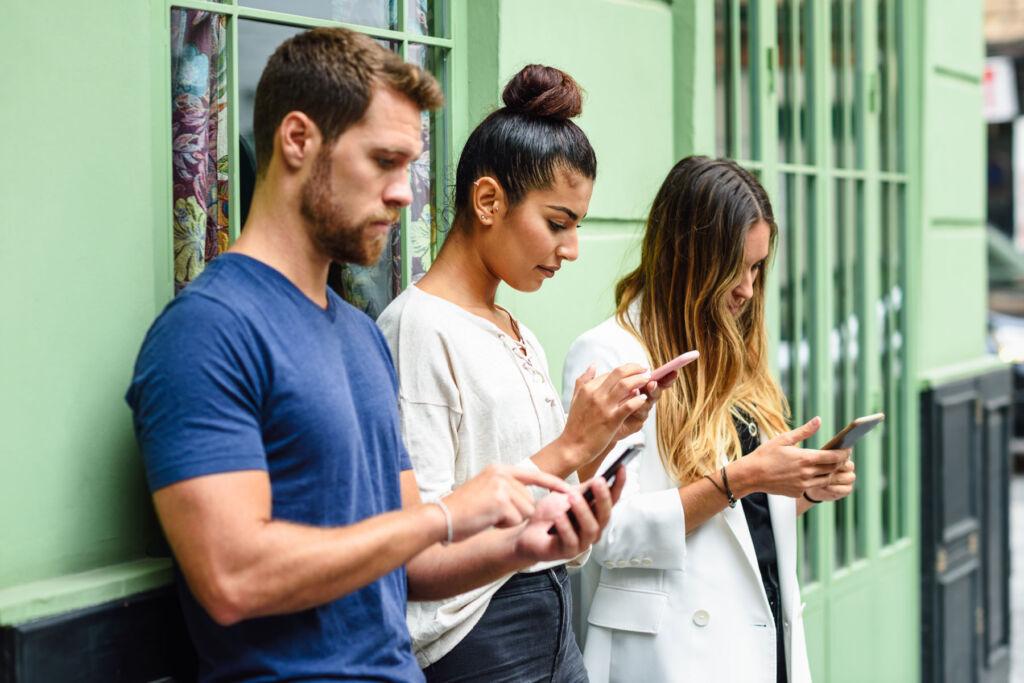
Mobile phone technology has advanced at an astonishing pace, and it’s not far-fetched to say that many of the most valuable aspects of people’s lives are now being carried around daily in a handbag or pocket. As millions of Brits ready themselves for their holidays, criminals will be getting prepared too by practising their shoulder surfing skills.
The reliance on mobile phones is part and parcel of modern-day life, and although they make life simpler, in the wrong hands, one’s life can be turned upside-down. Fortunately, companies such as NordVPN are experts at finding and creating ways to make life extremely difficult for criminals and scammers.
In this feature, Marijus Briedis, a cybersecurity expert at the company, explains what we should be doing to best protect ourselves.
“While most travellers are trained to look out for pickpockets in popular destinations and not walk around with pockets full of cash, today’s scammers are much more focused on your mobile than your money belt,” explains Marijus.
“The latest phenomenon we are seeing is ‘shoulder surfing’, where someone tries to steal your personal data by watching over your shoulder as you use a mobile phone, laptop, or another device in public. Cybercriminals may then use this sensitive information to commit identity fraud and hack into your bank account, while thieves may simply snatch the device out of your hands and know exactly how to unlock it.”
To help keep you safe when going abroad, here are some of the best ways to stop shoulder surfers in their tracks.
Might as well face it
“An unlocked phone can reveal a lot of your personal information, so if a criminal has seen you inputting an access code, this could make you the ideal target,” says Marijus Briedis. “However, theft becomes a lot tougher to pull off if they need your face to get their hands on your data.
“Facial recognition technology is improving all of the time and is now used widely on modern smartphones and on mobile banking apps, as well as Apple Pay and Google Pay. The technology is secure and goes through several rounds of analysing your face, so it should be only you that can get through it.
“If you don’t have it set up on your phone, consider doing this before you travel, as it can take a while for the technology to get every angle of your face. If you do use your phone for contactless payments, make sure that you have FaceID or a password set up as a security measure before using it, as it could put your cards at risk.
No safety in numbers
“When you see a beautiful view or popular attraction, it’s easy to lose track of the people around you when trying to take the perfect snap.
“The process of unlocking your phone, taking a picture, and then logging in to your social media account reveals several sets of personal details, which may be enough for an alert criminal to make hay with your data. Sharing holiday snaps on social media while away can also be a green light to burglars at home.
“Queues at tourist hot spots are a particular risk, as it’s hard to resist the temptation to glance at your phone, even with others close behind you. Try and shield your phone from whoever may be lined up next to you.
Be your own bank manager
“Rather than bum bags full of foreign banknotes, UK holidaymakers increasingly use debit and credit cards abroad, especially as many banks now offer zero fees for payments or allow you to buy in the local currency without an extra charge.
“The danger of going completely cash-free is that you are likely to be far more reliant on technology during your trip. This means you may end up in a situation where you need to use your mobile banking app in public.
“Avoid using your phone to access your bank account when in busy areas, and if you need to transfer money between accounts, do this before you step out of your hotel room and try to budget for the day.”
Bring your phone up to code
“When it comes to keeping your data secure, it’s best to think of your phone as a bank vault. Between apps, messages, photos and emails, you may not realise just how much of your valuable information is stored in each device.
“The best way to ensure that criminals have a hard time getting into your smartphone and apps is to set strong and unique passwords.
“Avoid common or easy-to-guess passwords, such as names, birthdates or ‘1234’ to open your phone. It pays to mix it up, so don’t use the same password on multiple accounts, as this will make it far easier for a criminal to gain access to a variety of different sites and services.
“The downside of having complex passwords is that they can be difficult to remember. If a thief steals your bag and you have your passwords written in a diary, this is also an easy route to stealing your identity. Consider using an encrypted password manager such as NordPass to store them in one place without putting yourself at further risk.
“Two-factor authentication is also a good idea as it means that you will have an extra security code in order to get through the password page. It may involve sending a one-time passcode to a different device or using facial recognition as an additional step.”
Keep it secret, keep it safe
“Privacy screen protectors, also known as privacy shields, are a great way to stop people from snooping on your devices.
“They work by making sure that you can only see a screen at a certain angle, leaving even a dedicated shoulder surfer needing guesswork to raid your mobile.
Read more lifestyle news, guides and features here.

![]()




You must be logged in to post a comment.